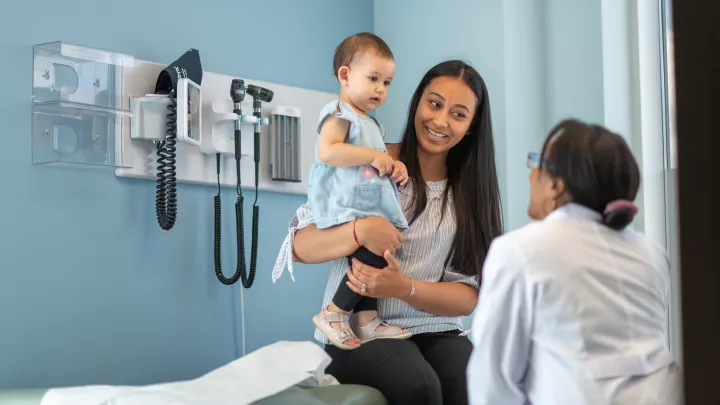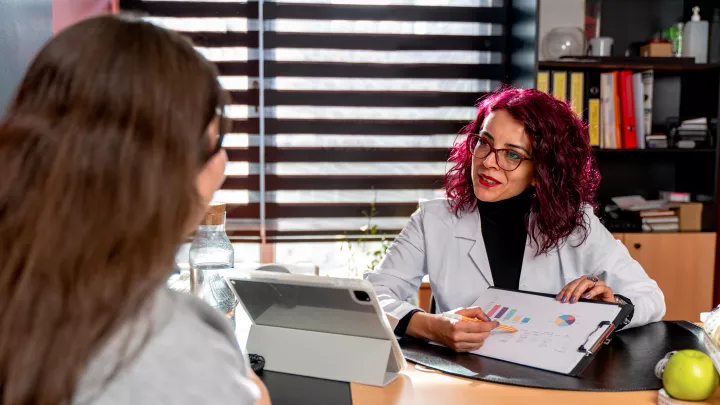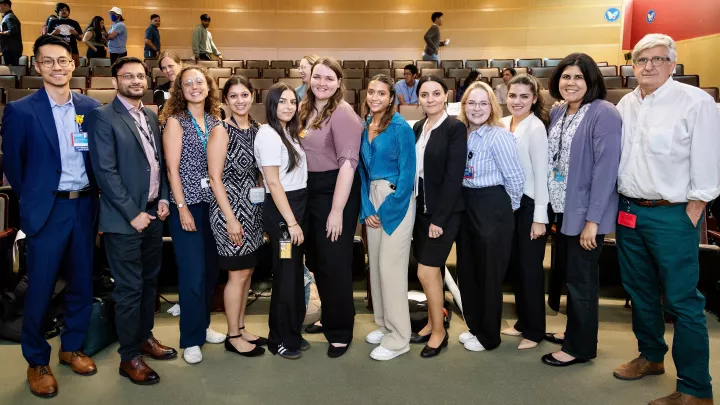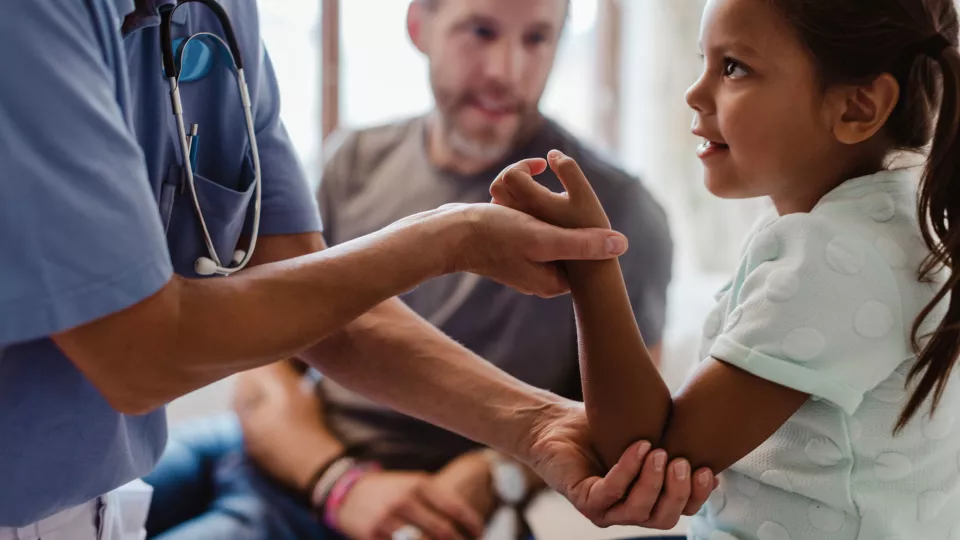
New Clinic Enhances Care for Children With Genetic Bone Disorders
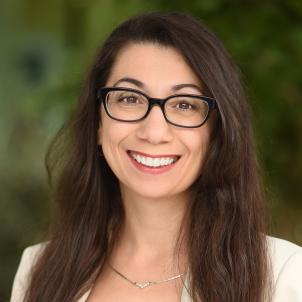
Children with genetic bone disorders often need complex care from a range of specialists who have expertise in treating these rare conditions. But it can be challenging for families to access experts from different disciplines, and they often need to juggle multiple appointments and complex treatment plans.
Now, Children’s Hospital Los Angeles has launched a new, multidisciplinary clinic that allows families to see several specialists on the same day—and receive a single, integrated and highly specialized comprehensive treatment plan for their child.
The monthly clinic, which began in November, is one of only a few in the country to combine experts from Endocrinology, Medical Genetics and Orthopedics for children with these rare disorders.
“Creating this clinic allows us to provide comprehensive care for children with genetic bone disorders,” says Anna Ryabets-Lienhard, DO, Director of the Pediatric Metabolic Bone and Mineral Disorders Program at CHLA. “It’s not only more convenient for families, but it enables our team to closely collaborate and create the best possible evaluation and treatment plan for each child.”
A team approach
Children’s Hospital Los Angeles has one of the largest programs for pediatric bone disorders in the country, diagnosing and treating hundreds of children with bone and mineral conditions.

The new clinic is a partnership between Linda Randolph, MD, Chief of Medical Genetics; Dr. Ryabets-Lienhard of the Center for Endocrinology, Diabetes and Metabolism; and Oussama Abousamra, MD, Director of the Limb Lengthening and Reconstruction Program in the Jackie and Gene Autry Orthopedic Center.
In addition, the group will involve genetic counselors, a nurse coordinator, social workers, and physical and occupational therapists. As part of the clinic, the team meets to discuss each patient and collaborate on care plans.
“It’s long been my dream to participate in a clinic like this for genetic bone disorders,” says Dr. Randolph. “It enables us to work closely together, ask each other questions and ensure each patient receives the best possible care.”
The clinic treats a range of conditions, which include:
- Osteogenesis imperfecta
- Juvenile primary osteoporosis
- Skeletal dysplasias, including achondroplasia and hypochondroplasia
- X-linked hypophosphatemia (XLH) and other congenital forms of rickets
- Hypophosphatasia
- Fibrous dysplasia/McCune-Albright syndrome
- Fibrodysplasia ossificans progressiva (FOP)
These and many other disorders seen in the multidisciplinary clinic are extremely rare and can have effects ranging from mild to severe—impacting a child’s ability to grow, walk, participate in sports and become independent adults.
“Early diagnosis and treatment are critical for these patients,” Dr. Abousamra says. “Comprehensive, multidisciplinary care helps promote the growth and health of their bones and can greatly improve outcomes and quality of life.”
Innovations in treatment
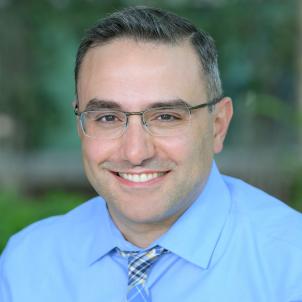
Accessing this care is particularly important because many of these conditions now have new and more effective treatments.
For example, a medication called vosoritide was recently approved by the Food and Drug Administration for infants and children who have achondroplasia. The drug can help these children—who have severe short stature—to grow taller than their condition normally allows.
Meanwhile, a drug called burosumab, approved in 2018, has been shown to decrease the severity of rickets and improve growth and activity in children with X-linked hypophosphatemia.
The Pediatric Metabolic Bone and Mineral Disorders Program in the Division of Endocrinology currently is conducting three clinical trials for pediatric bone disorders, such as osteogenesis imperfecta and XLH. Dr. Ryabets-Lienhard and Dr. Abousamra are also collaborating with the University of Alberta and Children’s Hospital of East Ontario on research studying X-linked hypophosphatemic rickets.
The clinic’s collaborative format aims to foster opportunities for new research as well.
“There isn’t yet a cure for many of these conditions, but we have a growing population of patients who are thriving,” Dr. Ryabets-Lienhard says. “Our goal is to build on that care and improve each child’s bone health and quality of life.”
